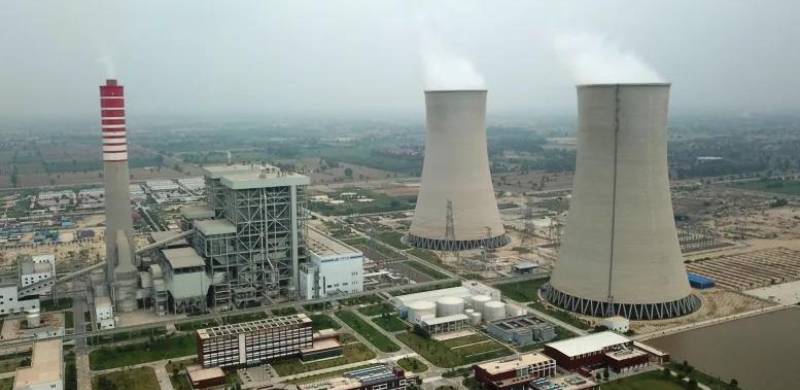
The International Monetary Fund (IMF) has not asked Pakistan to renegotiate energy deals made with the China-Pakistan Economic Corridor (CPEC), the organization's Islamabad representative Esther Perez Ruiz has clarified. Such reports are 'simply untrue', she said.
While Esther had not mentioned what the IMF was giving this statement in response to in the actual notification, it is pertinent to note that The Express Tribune had reported last week that the money lending body had asked the Pakistani government to revisit the deals it made as part of the CPEC.
According to the report, the IMF had asked Pakistan to renegotiate energy deals made under the CPEC before making payments of approximately Rs300 billion to Chinese power plants. "IMF suspected that the Chinese IPPs (independent power plants) might have been overcharging Pakistan and there was a need to reopen these deals," the report said
The report also mentioned Esther as saying that she had "emphasised the need for equitable treatment of all power sector stakeholders due to the limited fiscal space".
Without naming the report or the publication, Esther responded to the report by releasing a statement on Wednesday, saying that the IMF had not asked the Pakistani government to renegotiate the CEPC IPP contracts.
"Rather, the IMF supports the government’s multi-pronged strategy to restore energy sector viability which shares the burden of restoring viability across all stakeholders—the government, producers, and consumers," read the rest of the statement.
The statement has come as the government endeavors to comply with IMF's objectives hoping to continue its $6 billion loan facility, which has been halted since April. Part of this endeavor involved raising fuel prices, with the government announcing its third price hike in a month just yesterday (Wednesday).
While Esther had not mentioned what the IMF was giving this statement in response to in the actual notification, it is pertinent to note that The Express Tribune had reported last week that the money lending body had asked the Pakistani government to revisit the deals it made as part of the CPEC.
According to the report, the IMF had asked Pakistan to renegotiate energy deals made under the CPEC before making payments of approximately Rs300 billion to Chinese power plants. "IMF suspected that the Chinese IPPs (independent power plants) might have been overcharging Pakistan and there was a need to reopen these deals," the report said
The report also mentioned Esther as saying that she had "emphasised the need for equitable treatment of all power sector stakeholders due to the limited fiscal space".
Without naming the report or the publication, Esther responded to the report by releasing a statement on Wednesday, saying that the IMF had not asked the Pakistani government to renegotiate the CEPC IPP contracts.
"Rather, the IMF supports the government’s multi-pronged strategy to restore energy sector viability which shares the burden of restoring viability across all stakeholders—the government, producers, and consumers," read the rest of the statement.
The statement has come as the government endeavors to comply with IMF's objectives hoping to continue its $6 billion loan facility, which has been halted since April. Part of this endeavor involved raising fuel prices, with the government announcing its third price hike in a month just yesterday (Wednesday).

